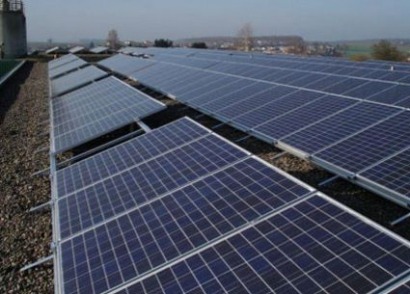
"Evergreen will continue seeking to reposition itself as a supplier of solar wafers, a building block of solar panels," Evergreen Solar's , CEO Michael El-Hillow said.
"The actions we are taking today enable the continued development of an industry standard wafer using Evergreen's differentiated technology and thereby provide the lowest cost wafer to the growing solar industry," he said.
Evergreen gained early support from investors with a process that used far less polysilicon to produce wafers than its competitors in the years immediately preceding the global financial crisis.
But the value of silicon fell dramatically after 2009 and previously growing solar markets in Italy and Germany slowed as subsidies were cut, meaning global solar panel supplies increased and prices dipped.
The change in context left Evergreen reeling, and in recent months it has seen its wafer price plummet by 35 percent.
The company now plans to sell itself at auction to raise the money needed to pay its creditors.
“It is a cautionary lesson. We knew that it would be challenging to do that kind of manufacturing in the United States,” Massachusetts Economic Development Secretary Greg Bialecki told The Boston Globe. “It also probably suggests that Massachusetts can’t do it alone — in other words, we probably also need federal policy.”
Documents filed on Monday in the US Bankruptcy Court show existing investors have launched a stalking horse bid of $165 million, while Evergreen is marketed to potential buyers.
News of the company’s collapse reignited political debate in the US state of Massachusetts, which gave Evergreen $58 million in subsidies and tax breaks in return for opening a manufacturing plant there.
In announcing its decision to file for bankruptcy, the company announced it is shuttering the plant and shedding 800 jobs.
Bradley Jones Minority Leader in the Massachusetts House of Representatives blasted Governor Deval Patrick, who had championed the incentive deal.
“The fact that Evergreen Solar has filed for bankruptcy protection should serve as a lesson to the Patrick Administration that throwing money at what they decide is the ‘industry du jour’ won’t necessarily translate into success for the Commonwealth,” Jones said in a statement.
“In a time where individuals and families are struggling financially, we need to be much more judicious in how we spend taxpayer dollars: on targeted, responsible investments to spur economic growth within Massachusetts,” Jones continued.
The Patrick administration has defended investments in Evergreen Solar as a worthwhile risk to support an important industry in Massachusetts.
A spokeswoman for the state Executive Office of Housing and Economic Development defended the administration’s tax incentive policies and noted that officials are working to recoup benefits that Evergreen received.
“This Chapter 11 filing was not unexpected and will not prevent the administration from recovering funds Evergreen owes the Commonwealth. We have already terminated the company’s tax incentive agreement, are aggressively pursuing recouping the $1.5 million in tax savings Evergreen realized this fiscal year and will move quickly to protect the public’s interests throughout the bankruptcy proceedings," said spokeswoman Kimberly Haberling, in a statement.
For additional information:

